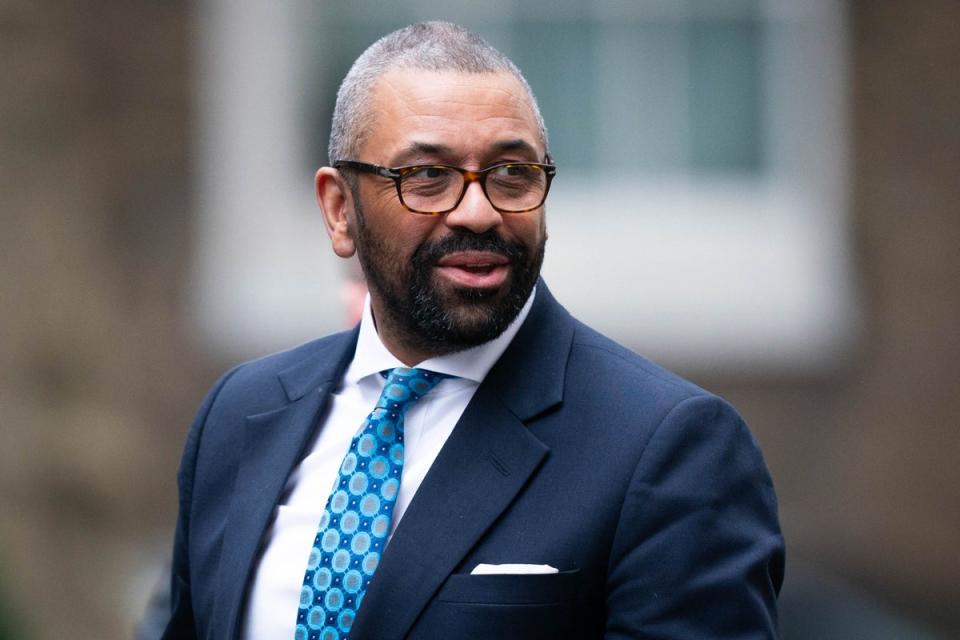Rwanda will benefit from asylum seekers sent from UK because of 1994 genocide, says James Cleverly
Rwanda will benefit from asylum seekers sent from Britain because it is "slightly underpopulated" following the 1994 genocide, the home secretary has claimed.
His comments came just hours after parliament passed Rishi Sunak’s controversial Rwanda Bill, designed to give thousands a one-way ticket to the African country.
Speaking at an event in Rome, James Cleverly was asked why Rwanda had agreed to take asylum seekers from the UK.
As well as the millions of pounds the UK has paid the country’s government, Mr Cleverly also pointed to its tragic past.
In 1994, an estimated that more than 800,000 people were killed when members of the Tutsi ethnic group were massacred by Hutu militias.
Mr Cleverly said: "For a country of a fairly modest population, it lost a very significant number of its people. So Rwanda - I may be a bit clunky with my phraseology - Rwanda is slightly underpopulated and there is definitely capacity for the individuals who are being relocated to Rwanda to be financially much more better off than they would be in their country of origin but also for Rwanda as a nation to be economically much more better off."
Mr Sunak has come under intense pressure to rethink the policy after five people, including a young girl, died trying to cross the channel.
The UN was among leading voices urging the UK government to reconsider, amid warnings the plan would fall to act as a deterrent to stop desperate asylum seekers trying to come to the UK in small boats.

Hours after the tragedy off the coast of northern France on Tuesday morning asylum seekers were seen in small boats attempting to reach British beaches.
Speaking to a think tank in Italy, Mr Cleverly also said Rwanda wanted to be an "exporter of solutions".
He said: "Africa, and I'm half-African so I can be a bit more critical than others would feel comfortable, but the sad truth is Africa as a continent is often perceived as an exporter of problems and an exporter of difficulties.
"(Rwanda) recognise that if they are going to compete on the world stage... they have to be quite creative with what their global offer is.
"It's quite clear to me that the Rwandans want to export solutions and that is part of what is going to be their offer to the international community."


